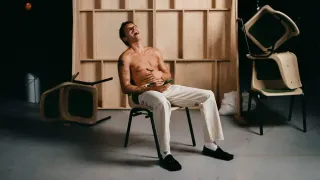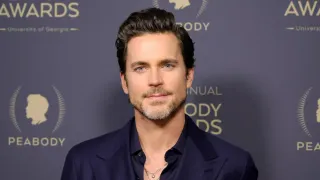July 7, 2019
US Wins 4th World Cup Title, 2nd in a Row, Beats Dutch 2-0
Anne M. Peterson READ TIME: 3 MIN.
The United States women's soccer team was as good as American players promised – maybe even better.
Especially Megan Rapinoe, the pink-haired captain who emerged with the Golden Ball as top player, the Golden Boot as top scorer and a world-wide stature as a champion for gender equity.
The U.S. won its record fourth Women's World Cup title and second in a row, beating the Netherlands 2-0 Sunday night when Rapinoe converted a tiebreaking penalty kick in the second half and Rose Lavelle added a goal.
Rapinoe scored in the 61st minute after a video review determined Stefanie van der Gragt had fouled Alex Morgan with a kick to the shoulder in the penalty area.
Two days past her 34th birthday, Rapinoe slotted the ball past goalkeeper Sari van Veenendaal for her sixth goal of the tournament. The oldest player to score in a Women's World Cup final, she struck a familiar victorious pose with arms outstretched.
"It's surreal. I don't know how to feel like now. It's ridiculous," Rapinoe said. "We're crazy and that's what makes us so special. We just have no quit in us. We're so tight, and we'll do anything to win."
Lavelle, at 24 the team's up-and-coming star, added her third goal of the tournament on an 18-yard left-footed shot in the 69th after a solo run from the center circle.
"She's superstar, not even in the making, she's straight up superstar at this point," Rapinoe said.
Fans, many dressed in red, white and blue, chanted "Equal Pay!" at the final whistle , a reminder players sued the U.S. Soccer Federation in March claiming gender discrimination.
Rapinoe drew the ire of U.S. President Donald Trump during the tournament by saying she and teammates would refuse to visit the White House, part of the team's wider push for gender equity. New York City Mayor Bill de Blasio needed just a few seconds after the final whistle to invite the team to a ticker-tape parade up the Canyon on Heroes in Manhattan on Wednesday.
The Americans never trailed in the tournament and set records with 26 goals and a 12-game World Cup winning streak dating to 2015. U.S. coach Jill Ellis became the first coach to lead a team to two Women's World Cup titles, and the U.S. joined Germany in 2003 and 2007 as the only repeat champions.
"It's just chemistry. They put their hearts and soul into this journey," Ellis said. "They made history."
FIFA president Gianni Infantino handed over the trophy, a stark contrast to four years ago in Canada, when then-president Sepp Blatter was a no-show as U.S. prosecutors investigated corruption in soccer's governing body. While the U.S. added fourth star to its jersey, Germany is the only nation that has even two.
With confidence and brashness that some called even arrogant – triggering a backlash that the angry response was sexist – this American team established a standard of excellence that exceeded the U.S. champions of 1991, 1999 and 2015, becoming a goal for all others to match. Former American players joined the current generation on the field for the postgame celebration.
Alyssa Naeher, the 31-year-old who succeeded Hope Solo in goal, faced repeated questions entering the tournament but allowed just three goals in the tournament and finished with her fourth shutout.
The U.S. had scored within the first 12 minutes of its previous six matches in the tournament but the European champions sat back to keep their defensive shape and kept the score 0-0 through the first half.
Video review, adopted by FIFA for the men's World Cup last year, showed its impact when Stephanie Frappart, the first woman to referee a men's Ligue 1 match, went to the screen at the side of the field and then signaled toward the spot.
Rapinoe, who missed Tuesday's semifinal win over England with a hamstring injury, became the first woman to score on a penalty kick during a Women's World Cup final, her 50th goal in 158 international appearances. She matched Morgan and England's Ellen White for most goals in the tournament and won the Golden Ball based on fewer minutes.
Rapinoe was given a standing ovation by the crowd when she subbed out in the 79th minute. The crowd of 57,900 at Stade de Lyon for Le Grand Finale included French President Emmanuel Macron.
The Americans opened the tournament with a record 13-0 rout of lowly Thailand, triggering debate over whether the celebrations after each goal were excessive. Carli Lloyd responded the next match by following a goal with a polite golf clap. The Morgan stirred it up again when she scored against England with a tea sip, pinkie outstretched.






